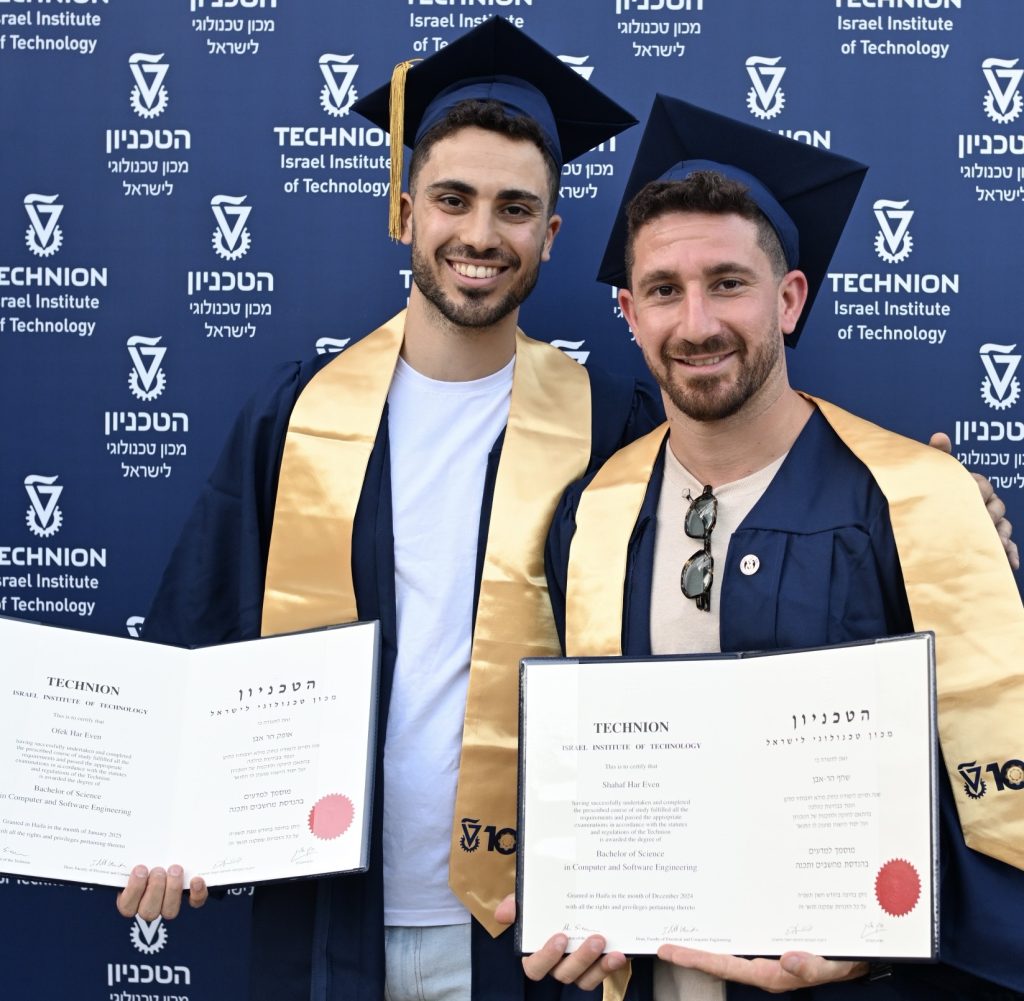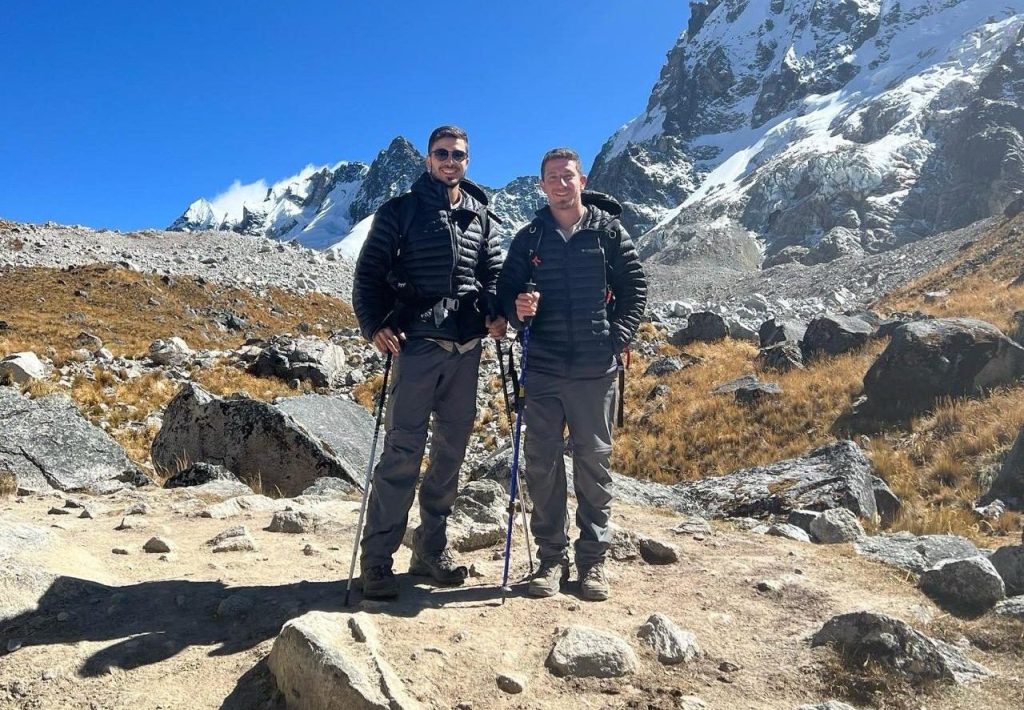Double Success
Twins Ofek and Shachaf Har-Even completed their undergraduate degree in the same program at the Technion, while simultaneously running a family business, getting hired by Apple, and each serving 250 days in army reserve duty
Today, the Technion will hold its graduation ceremony for its 96th class, which includes 1,904 students. Two of them are twins, Ofek and Shachaf Har-Even from Karmiel.
“We’re delighted with the four years we spent at the Technion,” says Shachaf, “and with how we managed to combine our studies with other pursuits. One thing’s for sure—it was the most challenging period of my life. More than serving in a special forces unit, more than working in high-tech. The intensity at the Technion is unmatched.”
Ofek and Shachaf were born thirty years ago, and no, they are not identical twins. They’re also quite different in personality. “Ofek has more of a managerial character, strategic thinking, and planning ability—he’s also much more stubborn than I,” says Shachaf, and Ofek confirms: “Shachaf is more easygoing and more of a doer, a man of the moment. The difference between us works well.” The twins studied together in a program for gifted students during elementary school and later enrolled in the same major in high school—the scientific-engineering track at ORT Psagot in Karmiel, where they studied electronics, algorithmics, and aeronautics—10 credit units in total. In addition, of course, they took 5 units in math, physics, and English. Together, they played in the national basketball league and trained and competed in karate, both holding second-degree black belts. “Sometimes Ofek would take first place and I’d take second, and sometimes the other way around,” says Shachaf. “Is there competition between us? Of course—there always is. But we turn it into something positive.”

They each did their final high school project independently—Shachaf developed a system to prevent drink driving (the car won’t start if you’re intoxicated), while Ofek developed a system to prevent illegal parking in handicapped spaces (the parking gate locks and alerts an inspector). The positive feedback they received on their projects led them to present them in New York as part of the “Israel as a Startup Nation” initiative. That was in 2013, and they were about to separate for the first time, for military service.
Toward the end of their service, they both took the psychometric exam, scored over 700, and had no doubts about where to study: “At the Technion, because it’s the best place,” explains Shachaf. “I told Ofek to choose a track and I’d go along with him, and that’s how we ended up in the Faculty of Electrical and Computer Engineering—in the Computer and Software Engineering program.”
They began studying at the Technion in October 2020, at the height of the COVID-19 pandemic, and did their final projects together. The first project focused on physiology and medicine: identifying brain dynamics related to motor activity, supervised by Dr. Hadas Benisty from the Rappaport Faculty of Medicine. The second project was consumer-focused: an app that advises users where to buy a product at the lowest price, based on their credit cards and membership clubs. This consumer app is tied to the fact that Ofek is enrolled in the Schulich Leaders Entrepreneurship Program at the Technion.
Their healthy competitiveness also led to a business collaboration—the founding of Dream Complex, a chain of fitness studios they launched with their brother as a tribute to their father, a fitness enthusiast with a Ph.D. in sports science.
“It all started during COVID,” says Ofek, “at the same time we began studying at the Technion. The first step was a gym in our parents’ garage, and it was physically built by our younger brother, Reef, who’s great with his hands.” The business has since grown to include a women’s training studio and two Pilates machine studios.
“Reef built everything, and our younger sister, now an officer in the IDF, built the website. One unique thing about the gym is that it operates 24/7.”
Alongside their studies and building the family business, each of the twins has done around 250 days of reserve duty since the beginning of the war. Once again, their partnership showed: “We covered for each other—when one was on reserve duty, the other helped with assignments,” they say. Despite all the reserve service, they managed to complete their degrees on time, within four years.

On how the Technion handled this period, they are candid: “At first, the Technion didn’t really know how to handle the war situation, but later on, they organized impressively in terms of supporting students. We felt it especially on the faculty and personal level—there was a lot of understanding of the challenges of reserve duty and flexibility, where possible. Of course, if you have a submission or an exam, you have to deliver like everyone else—but when help was possible, they gave it.”
And that’s not all. By the end of their second year, both had started working in high-tech at the same company. They both joined Apple, a week apart, as student interns, and near the end of their studies, transitioned to full-time positions—Ofek in verification, Shachaf in validation.
Amid all the studying, reserve duty, work, and running a family business, there were also personal milestones: Ofek got married shortly before the war and now lives with his wife in Haifa. Shachaf lives with his fiancée in Tel Aviv and is getting married in a few months.
Good luck, Ofek and Shachaf—together and apart.



